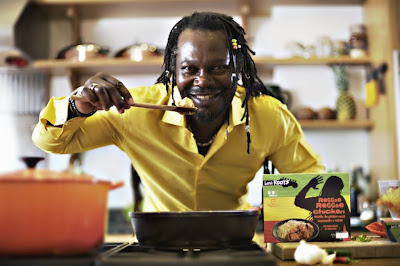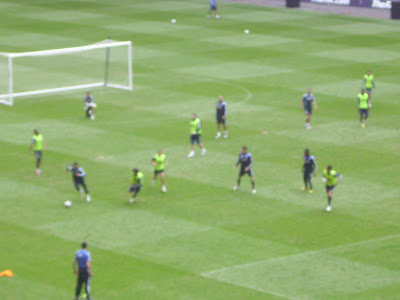
Emdad Rahman
Erasing Iraq reveals the true human costs of war in Iraq, an unfolding tragedy that has yielded millions of dead and displaced Iraqis since the first Gulf War.
For nearly two decades, the US and its allies have prosecuted war and aggression in Iraq. Erasing Iraq shows in unparalleled detail the devastating human cost.
Western governments and the mainstream media continue to ignore or play down the human costs of the war on Iraqi citizens. This has allowed them to present their role as the benign guardians of Iraqi interests.
The authors deconstruct this narrative by presenting a portrait of the total carnage in Iraq today as told by Iraqis and other witnesses who experienced it firsthand.
Featuring in-depth interviews with Iraqi refugees in Syria, Jordan and Western countries, Erasing Iraq is a comprehensive and moving account of the Iraqi people’s tragedy.
Why Iraq?
As an American, I feel responsible for what my country does in my name—and with my tax dollars. My co-authors, Richard Hill and Paul Wilson, felt the same about their native country, Australia. Given that the US has prosecuted war and suffering in Iraq from at least 1991—with the aid of allies like Australia— we thought it was appropriate to research the impact we have had on Iraq and her people.
The problem was—and in many ways still is— Iraqi voices are rarely heard in the West. They exist if one digs for them— in the blogosphere, in book and articles— but are not a part of the mainstream dialogue. We set out to change that. In our book we feature Iraqi bloggers and diarists, and many interviews with Iraqis about what it was like during the first Gulf War, UN sanctions period, second Gulf War, and the Iraqi civil war. Was life better under Saddam? Did they want the US to invade in 2003? We sought answers for these types of questions.
What is the human cost of war in Iraq?
US-instigated war and suffering in Iraq started in 1991 with the first Gulf War— Iraqis have been needlessly suffering ever since. Between 1991 and 1998, UNICEF predicted that up to 500,000 Iraqi children died due to the damage to Iraqi health care system the ‘91 invasion and sanctions produced. In total, up to 1.2 million Iraqis died during the sanctions period, while more than 2 million left Iraq. Another 1 million were displaced within Iraq.
The 2003 invoked a massive human cost. Estimates of the total Iraqi dead from the invasion and aftermath total between 100,000 (www.iraqbodycount.org (www.iraqbodycount.org) to 600,000, to over one million depending on the counting method used. Plus, up to five million Iraqis have been displaced since 2003. This represents that largest movement of refugees in the Middle East since the establishment of Israel in 1948.
Remember, all the numbers above represent a human life killed or displaced. It’s easy to lose track of the fact that behind every ‘zero’ or ‘one’ is a father, mother, son or daughter with a life as rich as your own.
Are violence levels in Iraq up or down since the recent conflict began?
Violence slowly rose beginning after the 2003 invasion—but spiked after the first bombing of the Al-Askari Mosque bombing in Samarra in 2006. This sparked the most heinous and senseless Sunni-Shia violence. At the time, more than 30,000 Iraqis poured across the border to Syria per month. The Shia largely won the civil war and many Sunnis defected to the American side via Awakening Councils. When this occurred, violence began to dip back down.
What is the number of civilian deaths?
See the estimates listed above. Remember, body counts are a very contentious area, often politicized and open to tremendous debate. Conservative commentators typically seize on the smallest counts, while people on the left cite the highest counts available.
Has life improved for native Iraqis – do they feel safe in their country?
Life has improved compared to the darkest days of the occupation and Civil War, but tremendous social problems abound. The latest data shows that only 50% of Iraqis have access to more than 12 hours of electricity per day. About 20% has access to sanitation, 30% to health care services, and only 45% to potable water.
Life is extremely tough still for Iraq’s ethnic and religious minorities. They have little political voice in the new Iraq and have been targets of violence by both Sunni and Shia militias.
The biggest indicator of the state of affairs in Iraq are the status of the roughly 1 million Iraqi refugees in Syria and roughly 500,000 in Jordan. Despite the hardships— lack of work plus harassment by locals and government authorities— these Iraqis refuse to return home. Massive returns would be an indication that things are indeed ‘better’ in Iraq. This has yet to occur.
Is Iraq the most unstable country in the world?
The most unstable?—that is hard to say. A lot does depend on the resolution of the current governmental paralysis in the wake of the national elections. If a government is not soon formed, extremists may succeed in sparking tit-for-tat Sunni/Shia violence that was rampant during the civil war.
What is the local feeling towards international troop presence?
It depends who you ask. Many Shia were happy the US invaded initially as the US dislodged a brutal Sunni dictator. The Kurds in the north were initially hopeful as well. Although some were pleased— I have yet to meet an Iraqi that favoured grinding occupation by a foreign army. The fact that Obama plans to pull out all combat troops by the end of the summer—and all troops by the end of 2011— is something that most support. Again though, some Sunnis fear what will happen once the US leaves completely.
What is the level of feeling experienced by Iraqis on a daily basis?
Again, that is hard to say, it depends on the religious or ethnic group you ask. A good way to gauge what people are feeling is by reading Iraqi blogs—they reflect the real voices of Iraqis:
http://iraqblogcountexp.blogspot.com/
Has one dictator replaced another in Iraq?
In some ways yes. Saddam Hussein was brutal— he tortured and killed countless Iraqis during his reign. Today, death squads and torture chambers persist under Maliki. Human Rights Watch recently released an investigation into one of Maliki’s torture centers: it is graphic and disturbing and has inflamed Sunni groups to violence. The report is here:
http://www.hrw.org/en/news/2010/04/27/iraq-detainees-describe-torture-secret-jail
What is the global impact of the war in Iraq?
In the region, Iran is the true winner of the 2003 invasion. They are now the regional heavyweight and have influence in Iraqi affairs. While oil was a primary reason for the US invasion, it is interesting to note that most of the big oil contracts since the invasion thus far have been given to Chinese and Russian firms.
Who profits from Iraq’s debt?
Cancellation of Iraq’s debt is vital for reconstruction. Recently, China cancelled 80% of the debt it was owed—other countries should take similar steps. Iraq owes other countries around $67 billion— this money needs to go back into infrastructure, health care and education.
Will Iraq be a case of “Mission Accomplished”?
Not in the way George W. Bush envisioned it. Iraq was supposed to be a free-market paradise that would greatly benefit the US and its allies. But total deregulation has not come to pass and today the US does not have a vassal state in the heart of the Middle East.
What is the state of play with women and children in Iraq?
Women and children have suffered greatly. If you accept the higher body counts, then the 2003 invasion has produced roughly one million widows and up to 5 million orphans. As fundamentalism spiked in the wake of the invasion, the lives of women grew dire. Gangs have sprayed acid on the faces of uncovered women, while others have been kidnapped and killed over the way they dress. Many Christians, for example, were forced to cover-up simply to escape harassment. As for children, one could only imagine the trauma of growing up amid slaughter and death. Some have written about their experiences online. One of my favorite Iraqi bloggers, Sunshine, started posting when she was only 13. Her blog details the unique privations children and teenagers suffer in Iraq: http://livesstrong.blogspot.com/
Can Iraq be united?
The recent election results were hopeful. Religious extremist parties largely lost out to the secular ones. If the results of the election are accepted and a secular-led government is formed, then yes, Iraq will be a more united place. Whether this will come to pass is still uncertain.
___________________________________________________________________________________
Michael Otterman is an award-winning freelance journalist and human rights consultant. He was a recent visiting scholar at the Centre for Peace and Conflict Studies at the University of Sydney. He is the author of American Torture (Pluto, 2007).
Richard Hil is honorary associate at the Centre for Peace and Conflict Studies, University of Sydney and was senior lecturer in the School of Arts and Social Sciences, Southern Cross University, Australia. He has co-authored and edited a number of books in the fields of crimi¬nology, youth justice, and child and family welfare.
Paul Wilson, OAM, is Professor and Chair of Criminology and Forensic Psychology, Bond University, Australia. He has written or co-written over 25 books on criminal justice.
For further information, to request a review copy or to speak to the author please contact Jon Wheatley at jonw@plutobooks.com or on 0208 374 6424.
 Emdad Rahman
Emdad Rahman












































